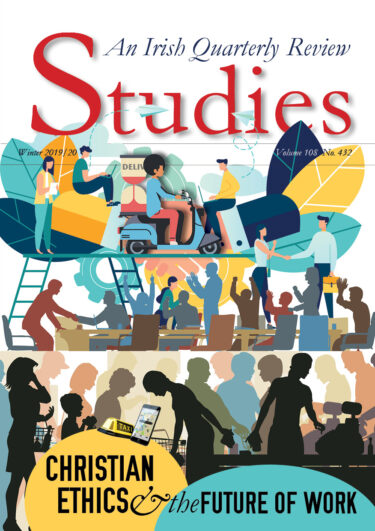Showing all 11 results
The Winter 2019 issue of Studies looks at the impact that the gig economy and other factors have on our attitudes and shifting priorities regarding the nature and future of human work – have we abandoned the dignity and integrity of the worker to the incessant demands of the marketplace?

